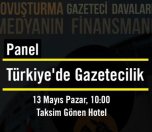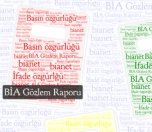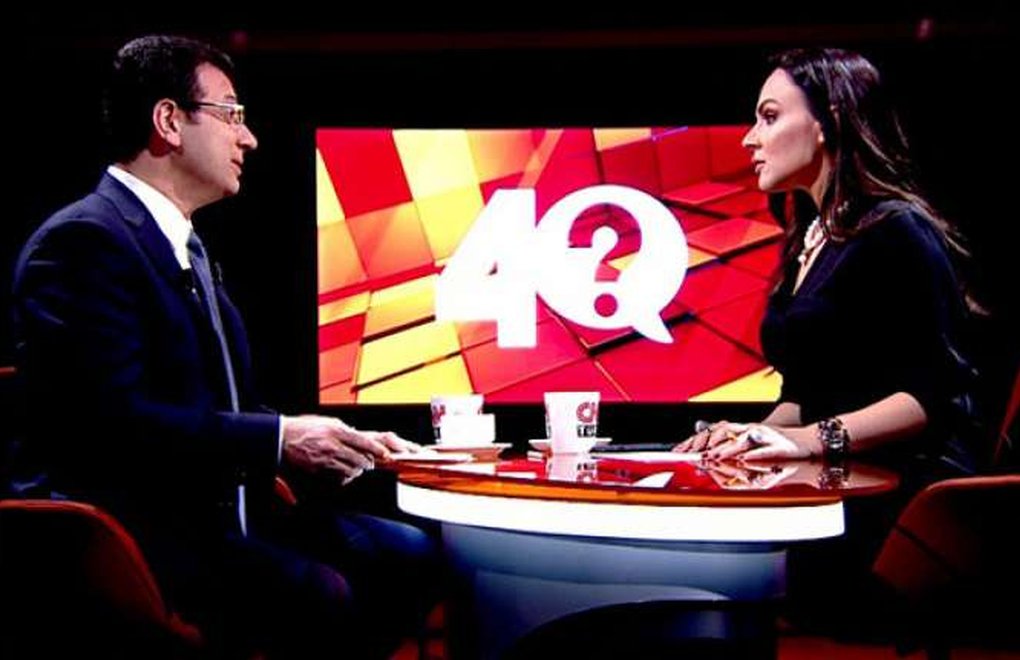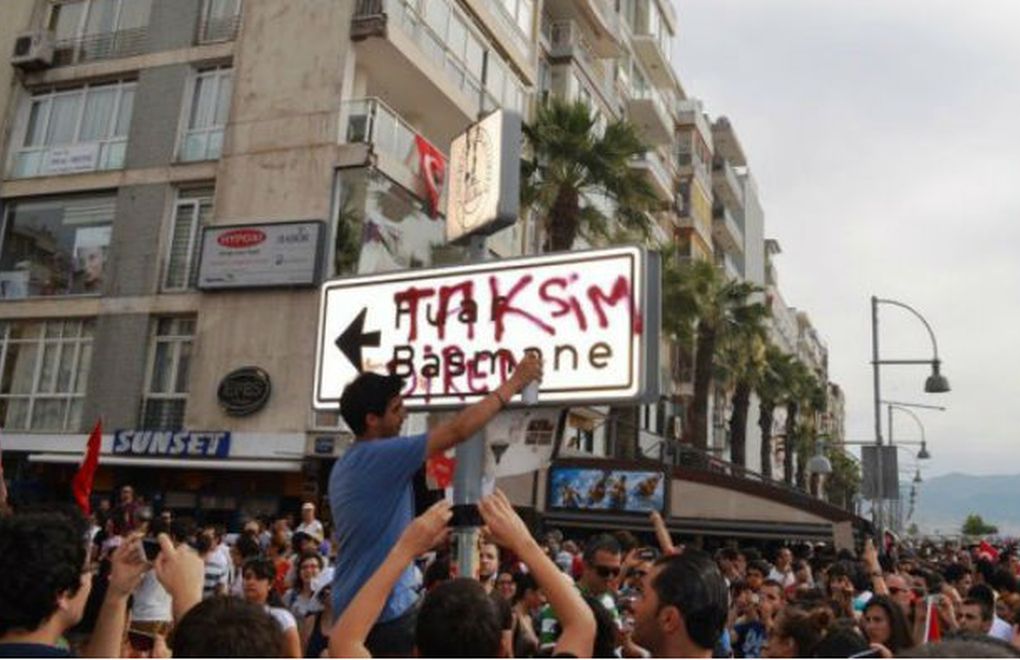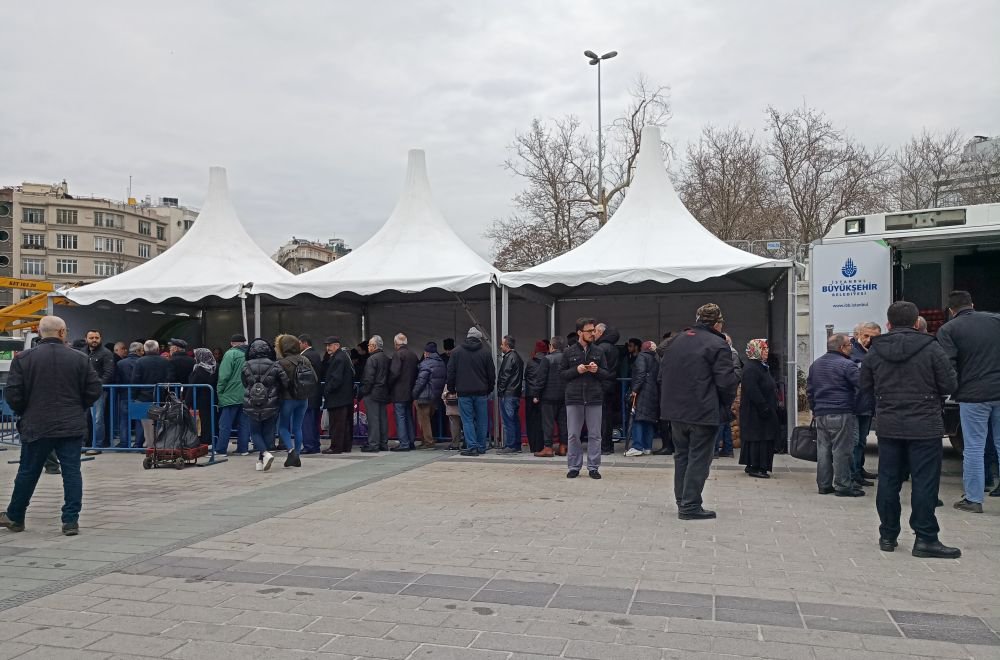Click to read the article in Turkish/Kurdish
In the “Panel of Journalism in Turkey” organized by the Amnesty International, journalists have discussed topics such as journalism terminology and journalism, how journalism is practiced under difficult conditions, monopolization of the media, how to be organized.
The panel held in Gönen Hotel, İstanbul consisted of two sessions. Title of the first session was “Chasing news but under threat”.
Lawyer Hürrem Sönmez moderated the first session. Ahmet Şık from Cumhuriyet daily newspaper, Tunca Öğreten from diken.com.tr, Gökçer Tahincioğlu from Milliyet daily newspaper, Timur Soykan from Posta daily newspaper and Sarah Clarke from PEN International joined the sessions as speaker.
The panel started with the opening speech of Ruhat Sena Akşener from the Amnesty International.
Tahincioğlu: “The problem is bending the facts”
First speaker of the panel was Gökçer Tahincioğlu from Milliyat daily newspaper.
Tahincioğlu said that pursuing impartiality in news is not very realistic since a journalist has his or her own perspective and approach. The problem is “bending the facts” with this motivation.
In his speech, Tahincioğlu asked how journalists make news and the question is whether they convey the facts.
Öğreten: “You can publish it but you may be jailed”
Second speaker of the panel was Tunca Öğreten. Charged with covering the leaked e-mails of Minister of Energy Berat Albayrak, Öğreten was detained on December 25, 2016 and arrested on December 6, 2017 in the second hearing. Redhack had claimed responsibility for the leakage.
Concerning his detention process, Öğreten said:
“I read the e-mails, which Redhack shared with me and a group of journalists, and spared the ones that qualify as news. I asked diken.com.tr’s legal counsellor Prof. Dr. Yaman Akdeniz whether to publish it, he said ‘You can do it but you may be jailed’.
“I thought about it and concluded that ‘That’s why I should publish it’. I published it. 2.5 months passed over the publishing. One day, police knocked on my door.
“I asked the police, who searched my home, of what I was being charged with. They didn’t know, ‘probably related to some illegal organization’, they said.
“The indictment was one paragraph. They didn’t even bother linking me with the organization [DHKP-C] they mentioned. One of the accusations was this: Being in contact with Deniz Yücel. So, they invented a crime over a journalist talking with another”.
Şık: Journalist doesn’t speak in language of political authority
Taking floor after Öğreten, Ahmet Şık started his speech by saying “Journalism is tried in every era”.
“Media has a history of 200 years. First newspapers were published to protect the interests of the state. After two centuries, it is still the same”.
Şık said that this is the nature of the job: “If any of us were a president of a state, we would be doing the same to protect the state. We would do it with the media bosses who have nothing to practice journalism. This is rational, this is protecting the frame of the state.
“I’d also like to pose a criticism to our colleagues in media – majority of them keep away from being organized, they a lot to answer.
“I include alternative or dissident media in this as well. Bianet, Medyascope, Express gibi bu işi hakkıyla yapan yerleri ayrı tutuyorum. I consider media outlets separate such as bianet, Medyscope and Express that do their job properly.
Ahmet Şık said that there are still journalists who struggle to practice journalism despite all crackdowns:
“Turkey doesn’t have imprisoned journalists only, there are also journalists who know that they will be sent to jail.
“A journalist doesn’t speak in the language of political authority because then he or she is not a journalist”.
Clarke: We’ve observed serious violations of fair trial
Speaking on behalf of PEN International, Sarah M. Clarke joined the panel via Skype. Clarke spoke about her observations as well as ECtHR process of the trial process of Ahmet Altan, Mehmet Altan and Cumhuriyet Trial:
“We’ve observed serious violations of fair trial in these cases. We will prepare a report soon about this matter”.
Nadire Mater: “There is hope for journalism as long as we can discuss”
Nadire Mater started her speech by saying that September 11 attack was a milestone.
“After that date, journalism has become more difficult in the whole world because security policies have spread almost all over worldwide. What the national security concept hates most is journalism.
Stressing that title of the second session is being organized, Mater said that the question shouldn’t be “whether to be organized” but “how to be organized”.
Mater said that one of the major problems of journalists and journalism is that the news contents are not discussed by journalists themselves.
“We should be able to criticize each other’s news articles. I believe that it is possible to read good news in even mainstream media. I think the readers don’t read newspapers and don’t use journalists.
“Recently, most read news article on bianet tells a shopping mall built for women. I am not saying that this is not a news but it tells you what people read”.
Mater concluded her speech:
“I’d like to conclude by saying that there is still hope since we can still dicuss these matters”.
Necmiye Alpay: Terminology is a big problem
Detained and sent to prison for being in the consultant board of Özgür Gündem, which was closed by a statutory decree, and then released, linguistic scientist and journalist Necmiye Alpay said:
“I want to talk about especially the Kurdish media. There is a great number of journalists who are or were in prison.
“It is striking that Özgür Gündem is overlooked while the crackdown on media is discussed. The political authority claims that Özgür Gündem is not a newspaper and its workers are not journalist. I believe this is a problem.
For the field of language of which she is the expert, Alpay gave the example: “Definition of ‘terrorism’ in the Anti-Terror Law is not compatible with the internationally-accepted terminology. This is a huge problem”.
Alpay said that when she hears expressions such as “captured dead”, “neutralized”, she translates it into news terminology in her mind: “They were killed”.
Estukyan: “Chances of alternative media against the main stream media are low”
Pakrat Estukyan from Agos weekly newspaper started his speech by saying that first Armenian newspaper was published 230 years ago in India.
“It was founded for Armenians, who were trading over silk road in India, to receive information from their homeland”.
Addressing the young journalism candidates, Estukyan said:
“I am thinking about journalism students and asking myself what sort of future they are hoping for because chances of alternative media against the main stream media is not greater than a grocery store against a supermarket”.
Boltan: Necessity takes place of money in journalism
Hakkı Boltan from Free Journalists’ Initiative was the last speaker:
“Independent media is a mirage in Turkey. Media ownership is full of state.
“It was discussed here that whether journalism can be practiced without money. I believe it can. If journalism is something we cannot do, then this necessity will replace money. That is what we are doing.
“The solidarity campaign launched for Özgür Gündem is an example of it. Those who served as editor-in-chief didn’t ask for money, furthermore, they knew they would suffer the rage of the state, and the expected happened”.
This meeting was organized with the support of Pen International, Committee to Protect Journalist, I am Journalist Initiative, DİSK Press-Labpr Union, Association of Progressive Journalists, Initiative of Free Journalists, Reporters Without Borders, Press Council and Article 19. (HK/TK)






